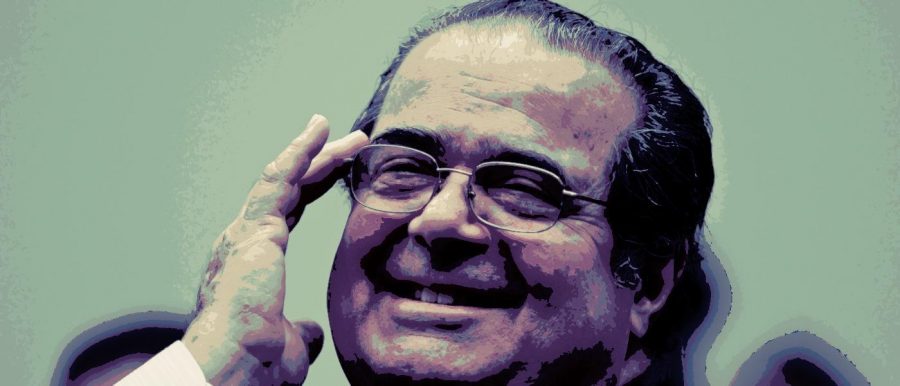He was quantifiably funny, and an cornerstone of modern conservatism. His sudden death has electrified the political field, already buzzing from the presidential race.
This was Justice Antonin Scalia, found dead in a West Texas resort on Saturday, Feb. 13, with fitting political repercussions for one of the most brazen opinions to serve on the Court.
Regardless of his political views, Justice Scalia has made and will make, with his death in coming months, a great impact on America. His close though unlikely friend, the progressive Supreme Court Justice Ruth Bader Ginsburg, said, “I disagreed with most of what he said, but I loved the way he said it.”
The Man: Polarizing Opinions
The Reagan-nominated Scalia took his seat on the Supreme Court in Sept. 26, 1986, as the first Italian-American to do so. Over the next three decades, he became a vociferous champion of conservatism.
His aggressive voice ignited liberals, inspired conservatives and led to his blooming friendship with the progressive Justice Ginsburg. Despite differing views, Ginsburg and Scalia appreciated each other’s intellect. The unlikely pair vacationed together, spent New Year’s Eve together and even had an opera written about them, together.
His opinions were “pungent,” Ginsburg said. “[But] so clearly stated that his words never slipped from the reader’s grasp.”
More than he was a conservative, however, Scalia was a self-proclaimed “originalist.” He believed in strictly following the original 18th-century Constitution when making court decisions. “You can’t reinvent the wheel. Let’s […] go back to the good, old dead Constitution,” Scalia said in one NPR interview.
Though stubborn loyalty to originalism is what made him appeal to conservatives, it is also, in fact, what makes his legacy great among conservatives and liberals alike.
The Legacy: Working for the Constitution
Though known for his scathing remarks, Scalia didn’t influence landmark case outcomes much: he rarely wrote for the the majority opinion on cases.
What he did influence, however, was the field of legal thought. He put political issues in the frame of the Constitution and viewed modern-day issues with an 18th-century lens.
Though this philosophy may seem like a horrid regression of political thought, Scalia’s ideas and his colorful prose emphasized the Founding Fathers in the discussion of societal problems. It gave both legal thinkers and everyday partisan citizens another tool, the Constitution, to support their own political views.
Surely same-sex marriage is part of the Equal Rights Act? Does that same part of the Constitution extend rights to illegal immigrants?
Regardless of the political party, modern day people put their issues in context of the Constitution, and Scalia largely contributed to this revival of a constitutional emphasis. Whether that’s is good or bad, it’s happened. Presidential candidates, voters and party leaders will only continue using it to defend their ideas in coming months.
The Future: An Open Vacancy
Scalia’s death leaves the ninth spot empty on the Supreme Court bench, now evenly split 4-4 between liberal and conservative. This comes right before the court will judge a number of the most controversial cases currently in America.
What makes this nomination controversial is that Scalia died during Obama’s last year in office and the early primary season, in which Republican candidates prepare to succeed Obama. Ever fearful of a Democratic-dominated Supreme Court, Republican leaders thus argue that it’s not within Obama’s power to appoint a justice during an election year.
Not only is that fact-proven to be false, but it’s ironic. Denying Obama the ability to nominate a Supreme Court Justice is inherently a disservice to Scalia. Scalia, the adamant originalist, would have wanted the president to retain his constitution-guaranteed power of nominating a justice.
Perhaps he would’ve written a characteristically scathing dissent, or spoken some witty remarks in response to the situation. But who knows? Scalia has died, and with him, his singularly acerbic voice that took the stage on the Supreme Court.
Jenny Zhu – Editor-in-Chief














Andre Stipanovic
Feb 20, 2016 at 11:34 am
excellent concluding point